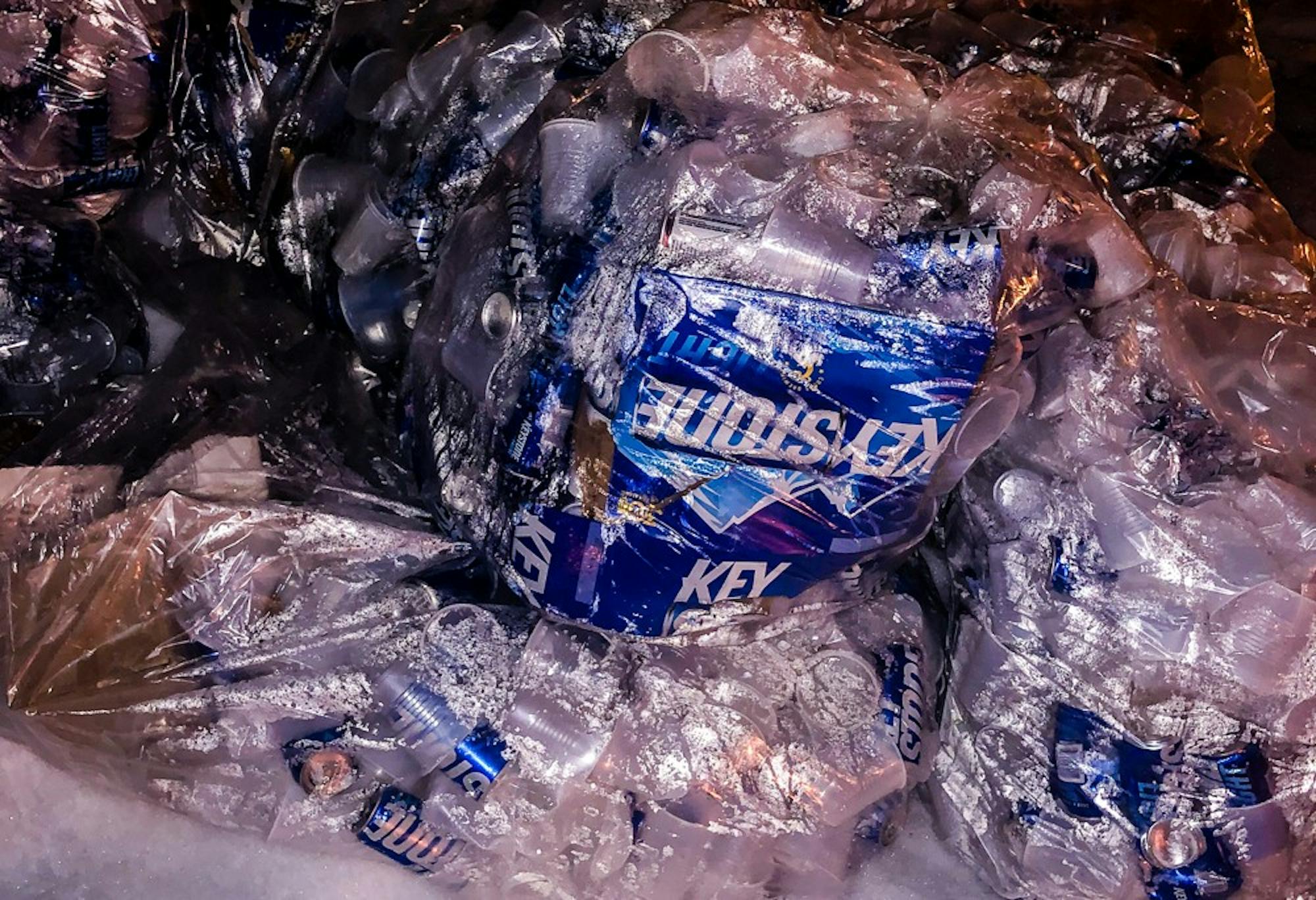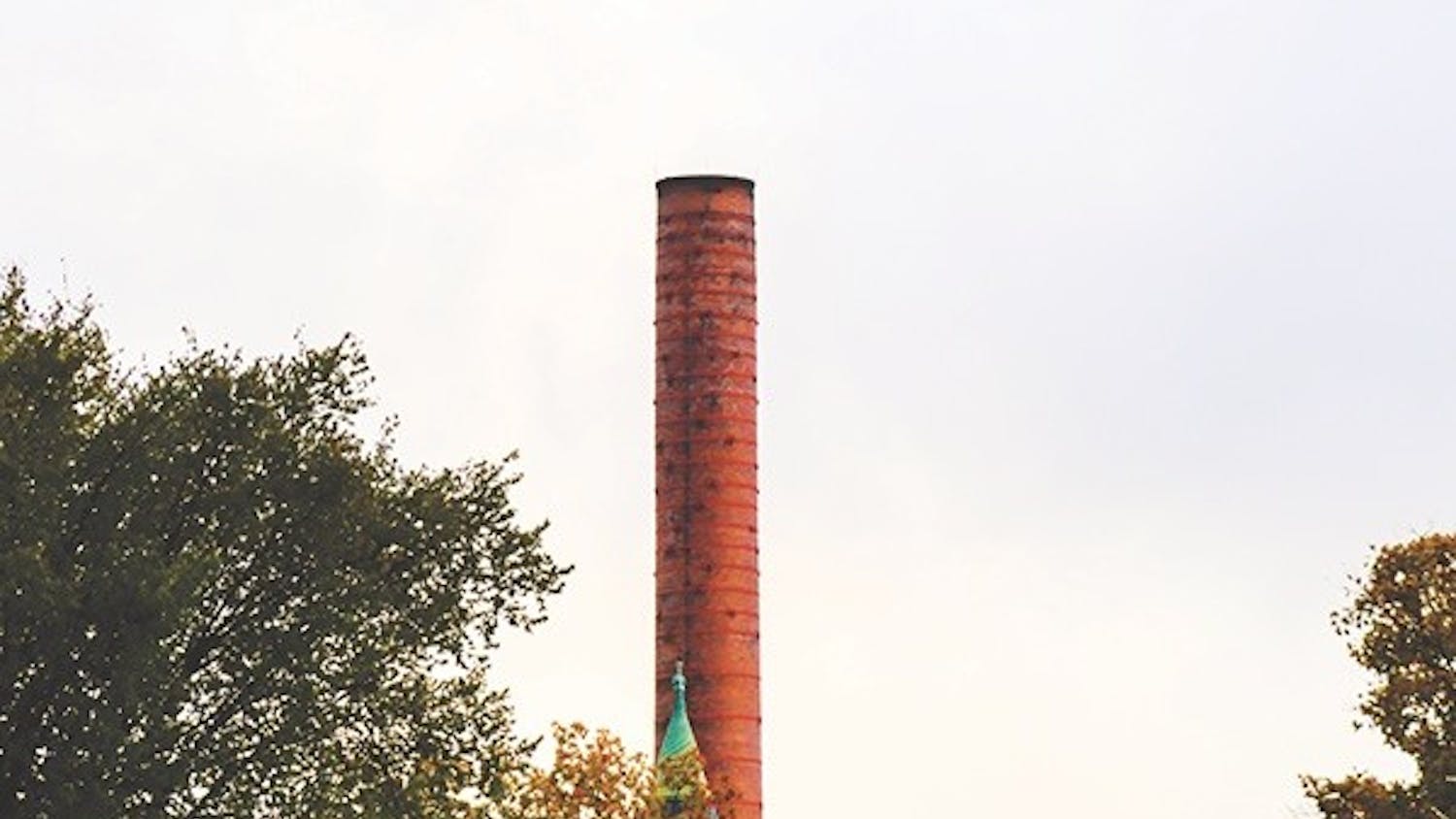There’s a reason many Dartmouth students have a pair of designated “frat shoes.” The mixture of stale beer, empty cans and pong cups that covers the floors of Greek house basements will ruin a pair of shoes in minutes. For most partygoers, leaving behind the night’s messy detritus is as easy as taking off our shoes. But those cans don’t just go away — so where does all this trash go in the morning?
The numbers are staggering: According to Dartmouth sustainability office intern Sophia Greszczuk ’22, the average Greek house at Dartmouth goes through 11,400 pong cups and 2,200 cans of Keystone a week. Over one term, that adds up to 114,000 cups and 22,000 beer cans.
“It’s not like we’re doing something technically wrong, but it’s a lot of plastic, and it’s a lot of cheap plastic,” said Chi Delta sorority sustainability chair Kristina Strommer ’22.
Recycling cups and cans might seem straightforward, but because of strict contamination requirements and a lack of demand for materials, recycling isn’t as easy as shovelling the basement floor’s contents into a bag.
According to facilities operations and management contracts process coordinator Susan Weider, Dartmouth contracts Casella Waste Management to handle its trash and recycling, and the recyclables Casella picks up on campus are sorted locally before being shipped to China for processing. Weider said that Casella recently switched to a zero-sort system in which all recyclables are lumped together. This makes recycling simpler, but more prone to contamination — and Weider said that along with China’s reduction of its contamination threshold to 0.5 percent in 2018, getting Dartmouth’s recyclable materials actually recycled has become significantly harder.
“We used to have about 700 tons of recycling each year, and now we are at about 360 [tons] because of that,” Weider said.
Additionally, recycling is expensive: Weider said that it costs Dartmouth $25 more to recycle a ton of waste then it does to put it in a landfill, and the plastic used in pong cups isn’t profitable to recycle.
While this does not mean Greek houses cannot be sustainable, Lindsey Reitinger ’20, another sustainability office intern, said that Greek houses currently are not organized in a way that puts sustainability first.
“If you’re the one who’s responsible, you’re thinking about risks; and if you’re in the social space, you’re thinking about having fun,” Reitinger said.
To address this dilemma, Greszczuk and other students at the sustainability office started a recycling competition between Greek houses, complete with cash prizes for the winners. There will be a prize for the house that produces the largest total number of uncontaminated recycling bags and a prize for the house that improves its waste diversion the most, which ensures that smaller houses or houses that host events infrequently still have the opportunity to win. Facilities operations and management will be in charge of overseeing collection of the bags, according to Greszczuk.
Greszczuk said that some houses have already changed the way they do cleans in order to decrease contamination within their recycling. She said that there will also be two mid-term updates on the competition, meant to inspire friendly competition between houses in the name of sustainability, before the competition ends this term.
While the competition may not resolve the issue of sustainability at Greek houses, Greszczuk said that an improvement within spaces that so many students are affiliated with will make a big impact on campus sustainability.
“There’s a lot of potential to make a big difference because of all the waste [Greek houses] create, and if there’s any less that goes in a landfill or to Casella, we’ll be really happy about it,” Greszczuk said. The recycling competition isn’t a long-term solution: sorting and counting each house’s recycling is still expensive and time consuming, and the competition will only last for this term.
But sustainability isn’t limited to recycling, either. Strommer had some suggestions for how Greek houses can continue to mediate their environmental impact.
“I think if we can tackle something like composting, it will make Chi Delt and wherever else more sustainable as a whole,” Strommer said. “We’re looking into composting, and we would love for that to be a collaboration with other houses.”
Whether it’s as involved as starting a collaborative composting program or as simple as sorting cups from cans before recycling them, there are feasible ways to make Greek life at Dartmouth more sustainable — but as Reitinger said, the process is challenging.
“The critical mass of people you would need to have actively caring about it to make a difference is really, really high,” Reitinger said.
Caris is a '23 from Long Beach, CA and is majoring in religion modified with art history. When not editing stories for the Mirror, you can find her playing club soccer, snowboarding at the Skiway or sipping coffee in Sherman Art Library. After college, she plans on attending graduate school in religion.




